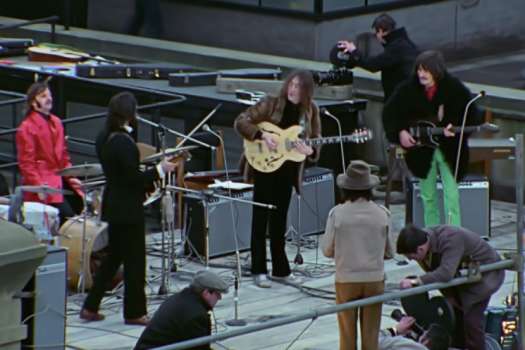The Cola Conquest is a three-part documentary that chronicles how Coca-Cola evolved from a brain tonic into an innocuous sugar drink into the dominant symbol of American capitalism the world over. Divided into three 45-minute parts, it thematically explores marketing, its connections to war (both the real and "cola" ones), and its impact as a force of globalisation. It's a fascinating look at Manifest Destiny in a bottle, but for all its critical exploration of the Atlanta head office's complicity in Southern racism, for example there remains a sense of awe throughout this documentary. Coke is treated as an almost mythical object; as much as The Cola Conquest wants to explore how Coke became not just the world's most successful brand, but a symbol of great power, it never really doubts that this is a good thing. It treats the facts of Coke's ascent as enough there's no need to question the underlying capitalist assumptions of this kind of vicious global bullying, as the corporation that invented the wheel effortlessly munches cultural and political considerations in its wake. What the doc does best is chronicle Coke as an image machine almost from the outset the corporation spends about 20 percent of its revenue on advertising and the impact its signature script has had. What it doesn't do is mount any challenge against the monolith; the drink's impact culturally (it's revered as a sacred object in Mexico; it seeks to replace tea culture in China; it's more powerful than most nation-states) is noted but not questioned. None of its health impact its effect on children or its corrosive content, for example is considered. Instead, Coca-Cola head office looms over us like a monolith, and we are, like third place challenger President's Choice cola, powerless in its wake. Commentary on part one by director Angelico and producer Abbey Neidik reveals one reason why: neither Angelico nor Mark Pendergrast, the author of the book that inspired the film, were allowed Coke as children. That fact goes along way in explaining why a red and white can of fizzy sugar water gets treated as an iconic symbol of the greatest significance. The Cola Conquest can help you understand why, it just won't offer you an alternative beverage to enjoy with it. Plus: document forum on Horns and Halos. (Microfilms)
The Cola Conquest
Irene Lilienheim Angelico

BY James KeastPublished Feb 1, 2004



